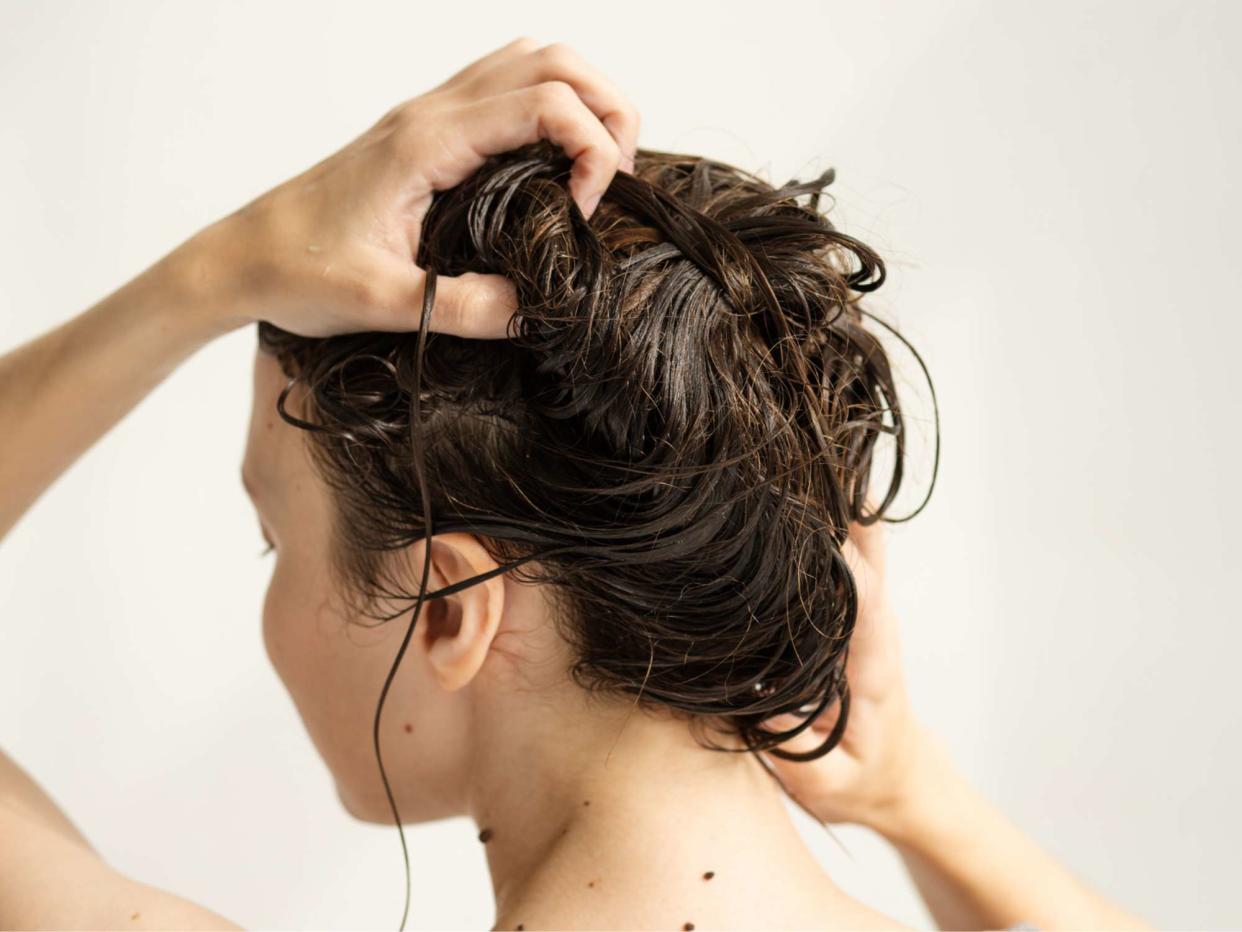Do Scalp Massagers Actually Work? Experts Weigh In

Stocksy
Reviewed by Julia A. Siegel, MD
Experimenting with and sharing styling product recommendations and haircare tips is nothing new, but it's only recently that scalp care has made its foray into the mainstream beauty world. Of course, dandruff remedies have long been on our radar, but taking care of a flake-free scalp wasn't really something anyone talked about. With a focus and emphasis on appearance, it's easy to get carried away with your strands' lengths and skip out on its foundation. But scalp care is an essential part of any haircare regimen, which is why scalp-centric scrubs, oils, and tools have taken the industry by storm with scalp massagers at the forefront. The question is: Can scalp massagers actually deliver the hair-loving benefits they claim or are they yet another device to be added to our cluttered drawer of beauty castaways?
To get the full scoop on scalp massagers, we went straight to two dermatologists. Read on to find out what to expect from the buzzy scalp tools and how to properly use one at home.
Meet Our Expert
Aleta Simmons, MD, is a board-certified dermatologist based in Nashville, Tennessee. She serves as the Assistant Professor and Diversity Champion of Dermatology at Vanderbilt University Medical Center.
Heather Woolery-Lloyd, MD, is a board-certified dermatologist based in Florida and the creator of Specific Beauty, a skincare line designed to treat hyperpigmentation.
What Are Scalp Massagers?
As its name implies, a scalp massager is a tool used to massage the head and scalp to increase blood circulation and release tension in the area, and in doing so also claims to stimulate hair growth. Usually made of silicone or wood, scalp massagers look like a hairbrush (either with a handle or fitting directly in the palm of your hand), but instead of bristles, they have thick (sometimes spiky, sometimes rounded) nodules to rub against the head. Those with spiked ends claim to perform double duty by breaking up any product buildup at the root of the hair.
Benefits of Scalp Massagers
Before diving into expert thoughts on scalp massagers, it's important to note that there is little scientific evidence of their ability to grow hair. However, experts say that massaging your scalp can help increase blood circulation, positively impacting your hair and scalp. Think about that relaxing moment when your hairstylist takes extra time to shampoo your scalp at the bowl. The tension created by their fingers helps cleanse and stimulate blood flow. Scalp massagers provide similar relief. "Scalp massagers can cause mechanical stress on the scalp, potentially leading to alterations in gene expression," says board-certified dermatologist, Aleta Simmons, MD. "These changes may lead to increased hair thickness."
Beyond the claims that scalp massagers may enhance hair growth, they ultimately just feel really good. Many brands and experts encourage people to use scalp massagers in tandem with a scalp treatment to help product application and absorption, which anecdotally may help encourage growth. Additionally, scalp massagers are great for relieving tension, itching, or incorporating another form of massage into your routine.
How to Use Scalp Massagers
Using a scalp massager might sound as simple as rubbing the tool onto your skin. Still, Heather Woolery-Lloyd, MD, a dermatologist, says it could damage your hair follicles if done improperly. As with most beauty treatments, being gentle with your scalp is essential. You can use a scalp massager in gentle circular motions on wet or dry hair. It's recommended to incorporate a scalp massager in your shower routine to maximize the benefits of products like scalp scrubs and serums.
How to Choose the Right Scalp Massager For Your Hair
We all have different hair textures and scalps, so finding the right scalp massager for you is key to getting the most out of the tool. The popularity of these handy tools means plenty of options to consider.
For example, using a brush with thinner bristles to quickly exfoliate the scalp like Tangle Teezer Scalp Exfoliator and Massager ($10) might work if dealing with regular product buildup. If you've experienced hair loss or have a sensitive scalp, Drs. Simmons and Woolery-Llyod recommend silicon bristles to help prevent breakage and reduce tangles or knots in the hair. We like Kitsch Pro Scalp Exfoliator, which has skinnier bristles to get in between thick strands. We also love Vegamour's Revitalizing Scalp Massager ($18), which has sturdy bristles and an easy-to-hold design, so you can really get in there. One editor found that the Maxsoft Hair Scalp Massager ($7) is a super affordable option for her natural hair that provides relief deep in the roots.
Potential Side Effects of Scalp Massagers
Scalp massagers are generally safe to use, but undesired side effects could result from user error. A gentle hand goes a long way here, as too much pressure or too vigorous a rhythm could not only damage the hair follicles but elicit skin injury or bruising in the area, as well. Scalp massagers should not be used on open wounds or infections. If you have any pre-existing scalp conditions or head trauma, talk to your doctor before incorporating a scalp massager into your beauty routine.
The Final Takeaway
When building a routine for your scalp, it's important first to assess your needs, and then find products that help accordingly. There's a large selection of scalp tools that claim to be the best, so reading reviews, consuming content, and asking an expert if you're unsure is the best route. Still, if you've just taken down a protective style, feel some trapped tension, or have an itch that your fingers won't fix, a good scalp massage might be a game-changing part of your hair care routine.
Read the original article on Byrdie.

